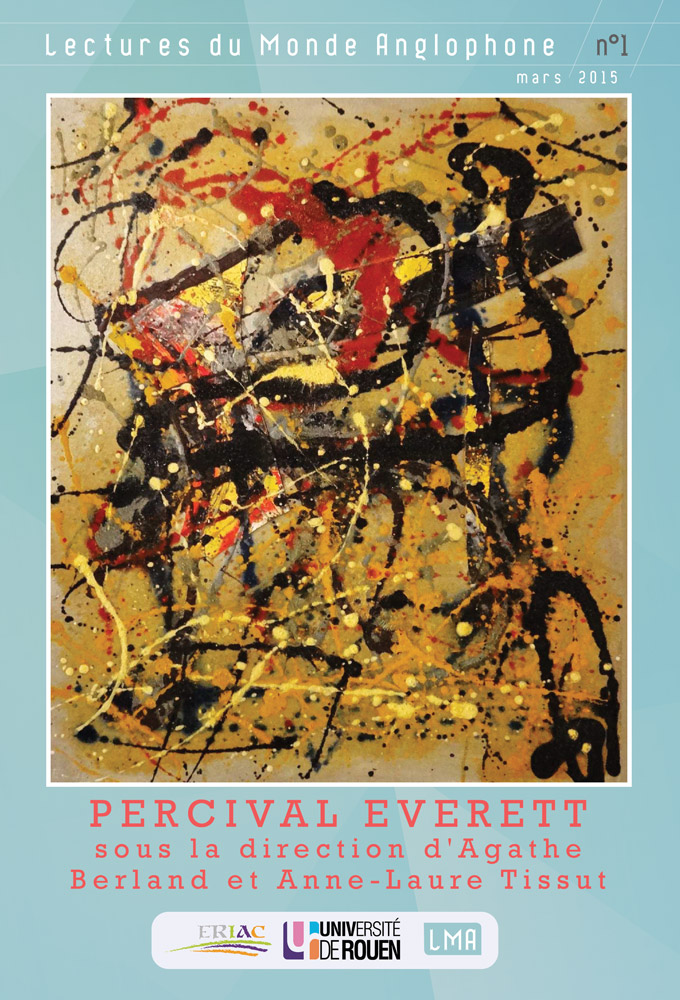Vision and Revision in Percival Everett’s Erasure
Auteur : Françoise SAMMARCELLIRésumé
Erasure (2001) is a highly reflexive novel in which Percival Everett engages in an ironical dialogue with literary and artistic traditions–a dialogue which a number of mock-philosophical conversations between famous artists (such as Rothko and Motherwell, Rauschenberg and De Kooning, etc) cleverly dramatize. Playing with a dynamic of revision on several intertextual and intersemiotic levels, the text denounces the conventions of representation (including representations of “black” identity) and addresses the ambiguous issue of political correctness. Rather than dwelling on the status of the richly parodic and already much-commented embedded fiction “My Pafology”, this paper will focus on the fragmentary quality of Ellison’s journal and its questioning of Western culture. What is it that we remember or forget? How do we make sense of our experience? It is worth examining how this brilliant novel compels its reader to change perspective and revise some of his/her interpretive strategies.
L'auteur
A former student at the ENS Fontenay-St Cloud, Françoise Sammarcelli is a Professor of American Literature at the Sorbonne University in Paris where she is the head of the Research Center on Texts and Images. She is the author of a book on John Barth as well as of many papers on issues of representation, on intertextuality as well as on intersemiotic relations. She recently edited two publications, Image et mémoire (PU Paris Sorbonne, 2009) and L’Obscur (Michel Houdiard, 2009).
Article au format pdf
DocumentPour citer l'article
Françoise SAMMARCELLI « Vision and Revision in Percival Everett’s Erasure »,
Lectures du Monde Anglophone / LMA, 1, 2015,
Percival Everett
© Publications Electroniques de l’ERIAC, 2015.
URL : https://eriac.univ-rouen.fr/vision-and-revision-in-percival-everetts-erasure/

